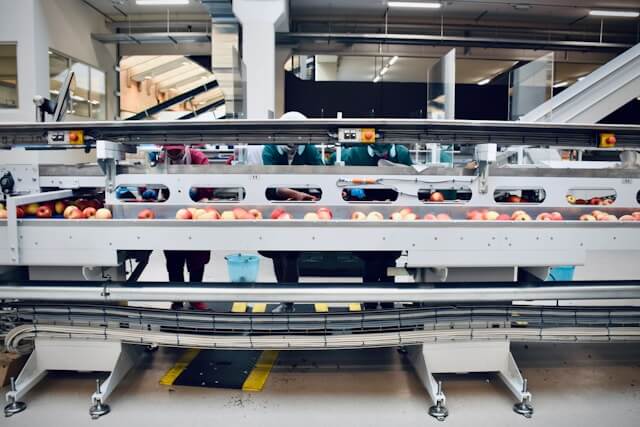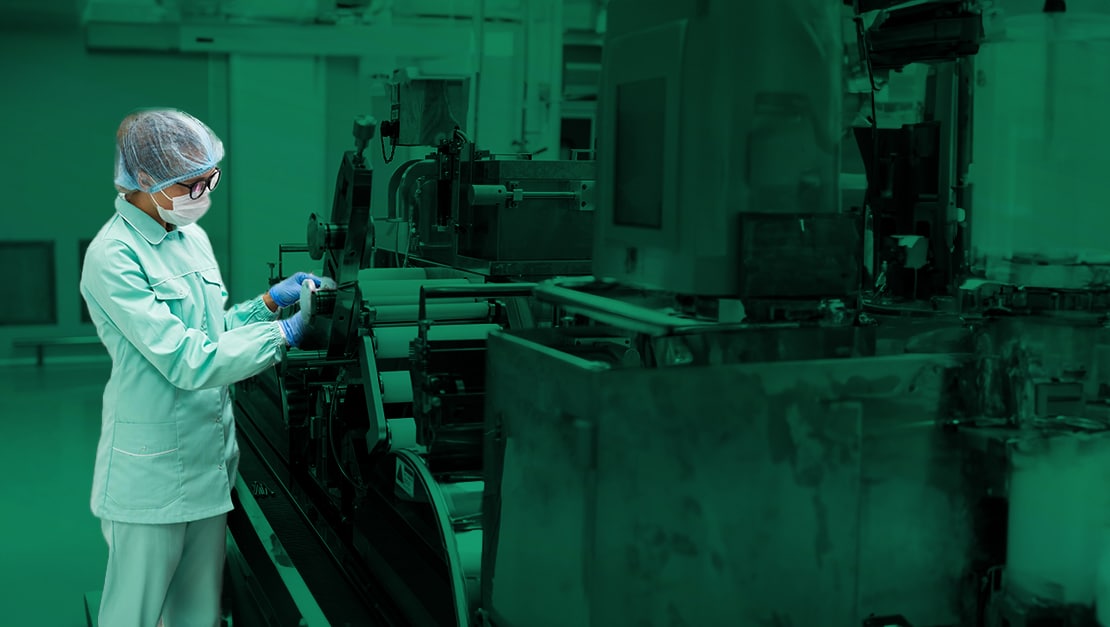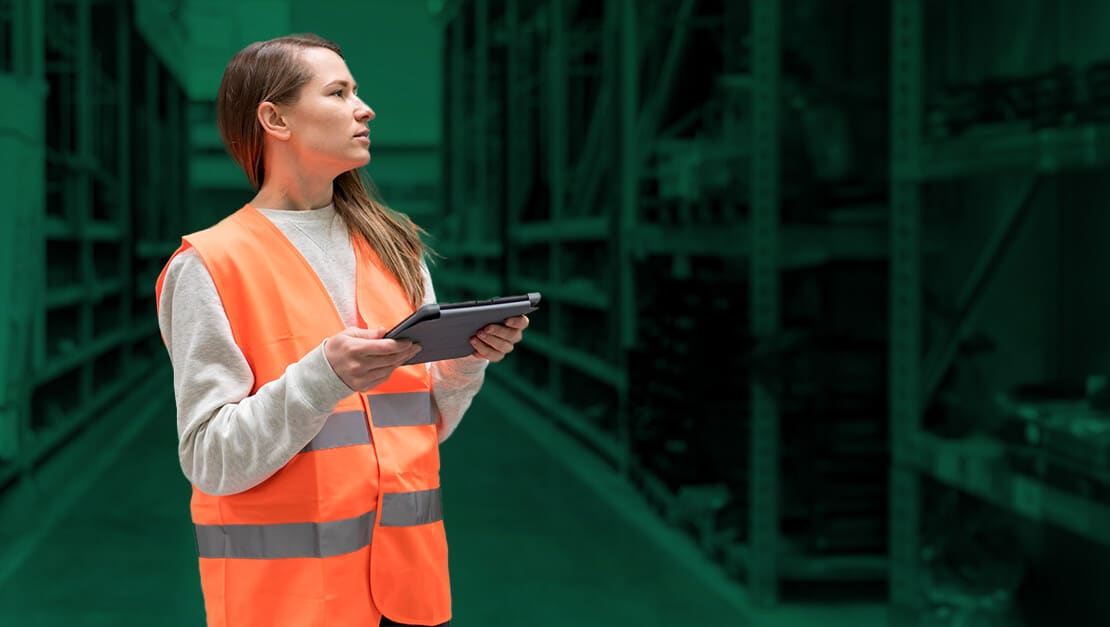In 2024, the global food market revenue amounts to $9.21 trillion. With volume only expected to grow, it’s no wonder why food manufacturers and players in the industry are always seeking cost-cutting measures, process improvement, and ways to maintain safety standards. That’s why many are adopting artificial intelligence (AI) technologies and tools to assist in supply chain management, food safety, food manufacturing, and more.
We’re going to see how AI in the food industry is bringing so many useful and beneficial advancements to the table.

AI Applications in Food Production
Let’s start with the beginning– the source and production of food in the first place. We can see at this stage how artificial intelligence is helping to optimize output, cut costs, and automate many key processes in farming and processing. Take for example these use cases:
Precision Agriculture
Precision agriculture (PA) refers to farming management that makes use of technologies like automation and GPS to optimize efficiency. Farmers can leverage auto steering equipment to perfectly plant crops or monitor data about animals to yield higher outputs, such as with dairy farmers and cows.
Robotics and Automation
Robotics, automation and AI are reshaping farming, as well. With autonomous tractors, robotics for weeding, and even drones that can monitor soil and crop conditions, farmers are able to have more data at their fingertips and more time on their hands.
Quality Control
Artificial intelligence enables big data analytics that aids in quality control. During the post-harvest stage, as the yield is moving to retailers and food processing, AI is being used to predict trends, detect spoilage in advance, and uphold quality. Supervised learning models and imaging can be used to detect fungal growths or bacteria on produce, as an example.
AI in Supply Chain and Logistics
After food is grown and harvested, it’s ready to be shipped out to retailers and manufacturers alike. When it comes to supply chain and logistics, even the smallest change can have a grand impact. Artificial intelligence is commonly utilized in supply chain management and logistics, for good reason. It helps to optimize processes, reduce risks, and save both money and time.
Here is a look at a few use cases of AI in food and beverage:
Demand Forecasting
One of the most complicated aspects in retail and commerce is knowing how much inventory to stock as it is all dependent on ever changing demand. With AI-enabled demand forecasting, companies have historical data to rely on to predict upcoming trends and demand. With AI, companies can better forecast the inventory levels that they’ll need, reduce waste and holding costs, and match their supply with customer demand.
Optimization of Distribution
Having the inventory on hand is just the beginning. It has to end up in the right hands at the right time, which is where distribution comes in. With large fleets and the movement of food from warehouses to retailers, route planning is top of mind. With AI, fleet managers have access to data to optimize routes, reduce delays, and even minimize fuel consumption.

Speech AI in the Food Industry
Speech-enabled AI technologies are supporting every step of the food industry, as well. Let’s see how:
Voice-Activated Assistants
When it comes to food service delivery and ordering, voice-activated assistants are streamlining the experience and alleviating the tedious to-do’s from humans. Many restaurants and fast food chains are using these assistants to take orders more quickly and accurately.
Voice-Enabled Devices and Appliances
In homes and commercial kitchens, smart kitchen appliances with voice-enabled solutions make it feel like there is an extra set of ears and hands in the kitchen. Users can speak to the devices to perform actions, such as to preheat the oven or turn it off.
Speech-AI for Management
Last but certainly not least, solutions like aiOla exist to assist in every industry, including the use of AI in food manufacturing. aiOla is a speech and touch-enabled solution that understands business-specific jargon, digitizes otherwise paper-based, manual processes, and captures unstructured speech data for analytical applications and insights. For food manufacturers, aiOla can increase uptime, provide real-time oversight, enable hands-free operations, and deliver real-time notifications.
Challenges and Considerations
As with all technology, there are plenty of upsides to be had, but it does not negate the various considerations and challenges that may arise. While artificial intelligence isn’t new, its expanded applications continue to evolve, and with that, comes concerns that must be addressed, including:
- Data Privacy and Security: How to handle consumer data in AI applications
- Ethical Considerations: Considering the impact of AI on employment in the food industry
- Regulatory Compliance: Adhering to food safety regulations and standards
The good news is that AI solutions do not intend to replace humans. Instead, they serve as a way to augment capabilities and actually enhance the worker experience, as humans have more time to focus on high-level and value-add tasks, rather than monotonous and repetitive duties. As such, employee satisfaction actually stands to rise.
AI Brings Plenty to the Table
AI in the food industry is positively impacting the business from production to consumption. Implementing AI in your business can improve resource allocation, optimize inventory management, support informed decision-making, empower actions in real-time, and even increase customer loyalty.
Getting started with AI solutions is easy- in fact, with aiOla, it’s as easy as talking through your already existing processes. We’re here to show you how it works.








